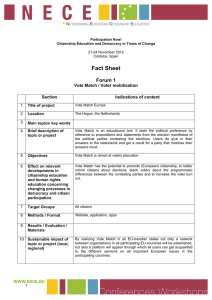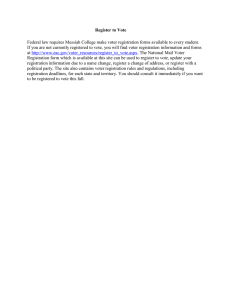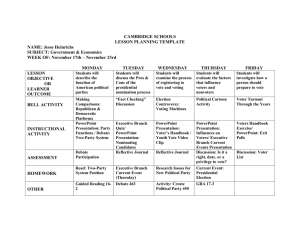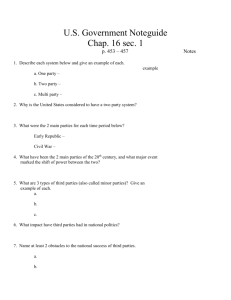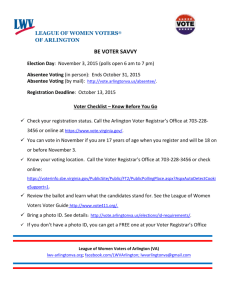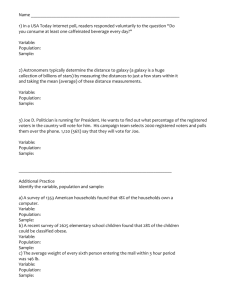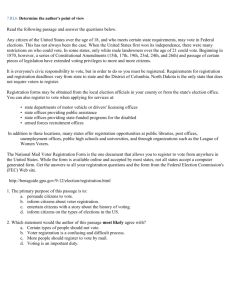Notes Chapter 10 / Microsoft Word 97
advertisement
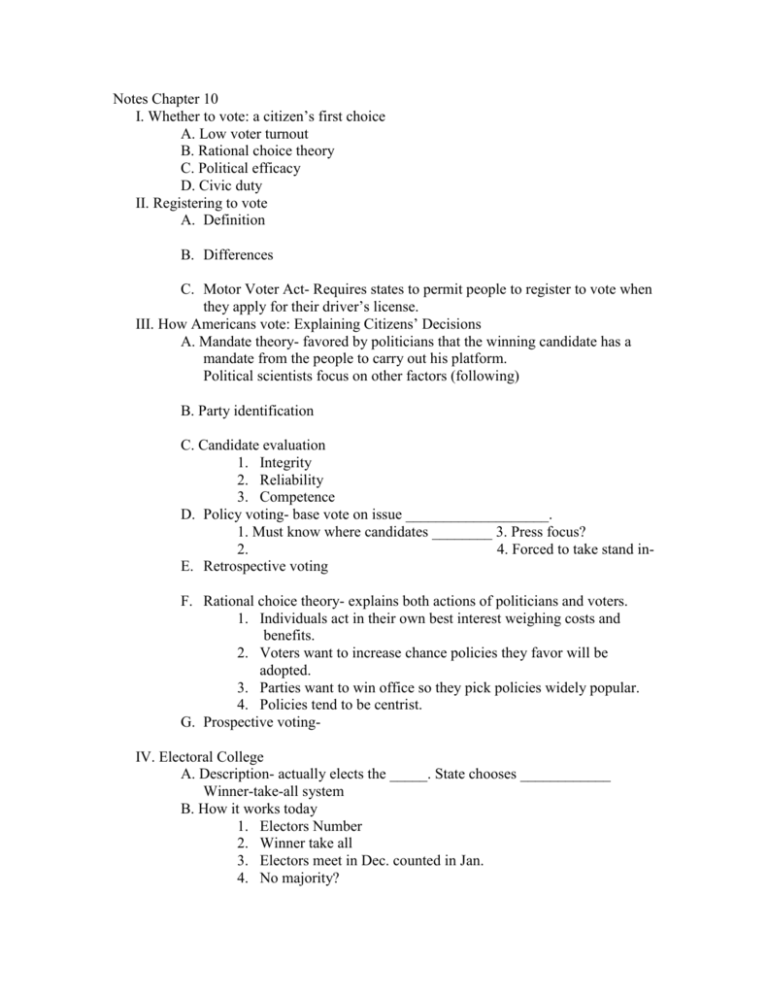
Notes Chapter 10 I. Whether to vote: a citizen’s first choice A. Low voter turnout B. Rational choice theory C. Political efficacy D. Civic duty II. Registering to vote A. Definition B. Differences C. Motor Voter Act- Requires states to permit people to register to vote when they apply for their driver’s license. III. How Americans vote: Explaining Citizens’ Decisions A. Mandate theory- favored by politicians that the winning candidate has a mandate from the people to carry out his platform. Political scientists focus on other factors (following) B. Party identification C. Candidate evaluation 1. Integrity 2. Reliability 3. Competence D. Policy voting- base vote on issue ___________________. 1. Must know where candidates ________ 3. Press focus? 2. 4. Forced to take stand inE. Retrospective voting F. Rational choice theory- explains both actions of politicians and voters. 1. Individuals act in their own best interest weighing costs and benefits. 2. Voters want to increase chance policies they favor will be adopted. 3. Parties want to win office so they pick policies widely popular. 4. Policies tend to be centrist. G. Prospective votingIV. Electoral College A. Description- actually elects the _____. State chooses ____________ Winner-take-all system B. How it works today 1. Electors Number 2. Winner take all 3. Electors meet in Dec. counted in Jan. 4. No majority?

